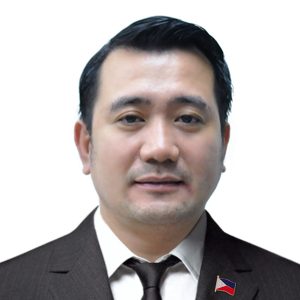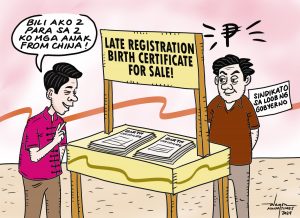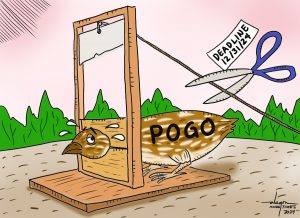
NOTHING is free in this world. That is for sure. We may not be paying for our lunch, but a friend, an acquaintance, or a family member is paying for it, or your government is doing it.
Someone makes something for someone.
Also, when someone does something, it may lead to harmful effects. In the field of economics, we call it an externality.
An externality exists in consumption or exchange, and when the situation of the people’s satisfaction depends on the consumption or activities of somebody else.
When a business’ production depends on the volume of inputs or outputs of another business, there is an externality.
In a dynamic market, competition is not enough. There is a requirement for cooperation. In support of this, information has to be accessible. In this global village, information is needed to be accurate and urgent so that people, government, and businesses can decide responsibly.
Any inaccurate information affects the better living. Human activities are altered, resulting in disagreements in the community, and the society in a broader context.
Let me cite an example. When there is massive logging and destruction of the upland forests, there will be water runoff, causing damage to the lives of the farmers, fishermen, and households in the lowland areas.
The damage is an externality if those who suffer are not compensated.
If this situation is ignored, it may lead to rising price increases, reduction in commodity consumption, and eventually, insecurity.
While welfare exists in a person’s state of mind, consciousness, and the ability to notice things around, the extent of welfare measures the degree to which the desires of individuals are met.
In improving the overall household’s welfare, it is essential first to increase the national income where the improvement is derived from increasing the productive capacities of previously unproductive sectors.
There is a need to reorganize the economy. Increasing the share of the poor in the national income is the first requirement, which is a matter of welfare improvement; those who are at the receiving end of the harmful effects of activities, as a matter of compensation.
On this, the objective of social policy is to promote social welfare and plan welfare projects. It is crucial to identify the beneficiaries of a program, determine the realized improvement in the well-being, and sustain it.
This approach requires distributing resources and offering physical products that satisfy the money value. It means that every product acquired meets the money value, down to the last money possessed by the last household. Welfare programs should help individuals actively participate in the market.
In this light, the Mindanao Development Authority, under Secretary Maria Belen Acosta’s leadership, ensures that every peso spent in Mindanao improves the welfare of every Mindanawon.
This social welfare intention is evident in the Mindanao Agenda 2022-28, Agenda 1-People’s Well-being which aims to pursue human development and overall well-being of all Mindanawons, marked by good health, comprehensive education, and social cohesion.
Under Agenda One, the proposed priority projects include health facilities enhancement program amounting to P27 billion, water supply and sanitation for Siargao estimated at P4.25 billion, upgrading of hospital facilities and construction of quarantine and isolation facilities estimated at P1.2 billion, and heritage park preservation at P260 million.
There is a very good reason to invest on the well-being of the people, it is because the people is the very foundation of a better Mindanao, of a strong nation.
(Adrian Tamayo is the head of the Public Relations of the Mindanao Development Authority (MinDA). He teaches economics at the Graduate School of the University of Mindanao and currently on a scholarship grant for a Master of Public Safety Administration (MPSA) at the Philippine Public Safety College.)


